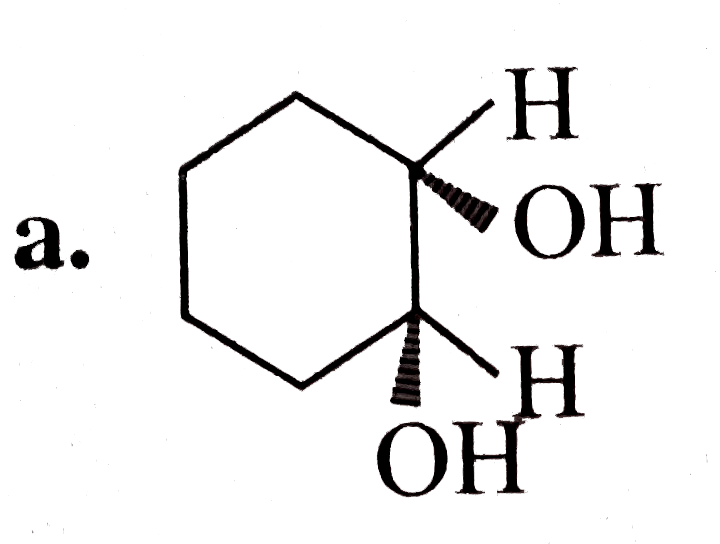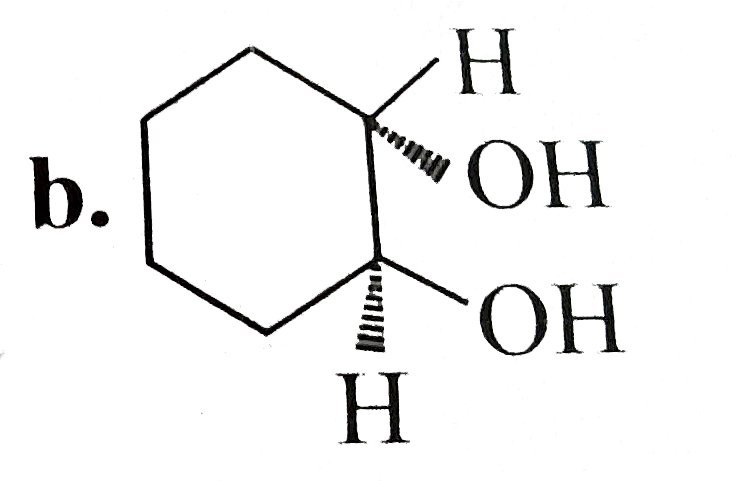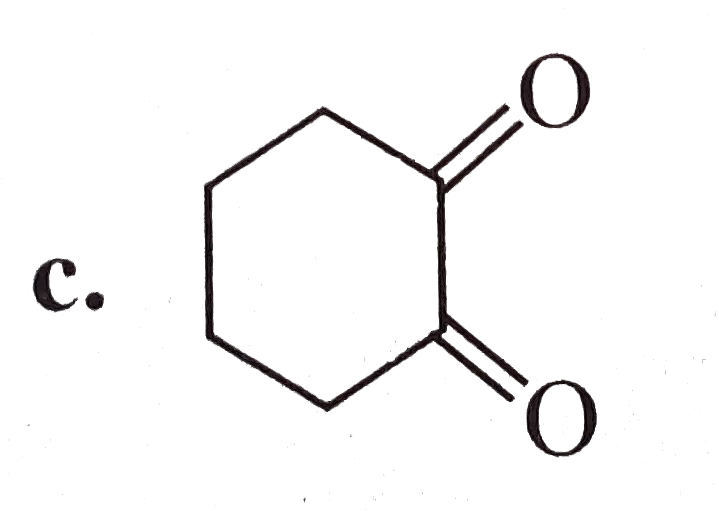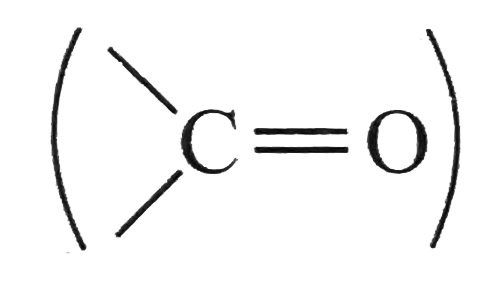Which of the following will undergo periodic oxidation?
A
a.
B
b.
C
c.
D
d.Glyoxal
Text Solution
The correct Answer is:A, C, D
a. Two (-OH) groups are at adjacent and syn (cis) positions. So it undergoes periodic oxidation.
b. Although two (-OH) group are at adjacent position but in anti (trans) position, so it does not undergo periodic oxidation.
Two

group are in adjacent position, so it undergoes periodic oxidation.
d. Glyxal (CH=O∣CH=O), two (−CHO) groups are in adjacent position so it undersgoes periodic oxidation. So the answer are (a),(c) and (d).
|
Topper's Solved these Questions
- REDUCTION AND OXIDATION REACTION OF ORGANIC COMPOUNDSBOOK - CENGAGE CHEMISTRYCHAPTER - REDUCTION AND OXIDATION REACTION OF ORGANIC COMPOUNDSEXERCISE - Exercise (Single Correct)
90 Videos
- REDUCTION AND OXIDATION REACTION OF ORGANIC COMPOUNDSBOOK - CENGAGE CHEMISTRYCHAPTER - REDUCTION AND OXIDATION REACTION OF ORGANIC COMPOUNDSEXERCISE - Exercise (Assertion And Reasoning)
10 Videos
- REDUCTION AND OXIDATION REACTION OF ORGANIC COMPOUNDSBOOK - CENGAGE CHEMISTRYCHAPTER - REDUCTION AND OXIDATION REACTION OF ORGANIC COMPOUNDSEXERCISE - Exercise (Linked Comprehension)
52 Videos
- QUALITATIVE INORGANIC SALT ANALYSISBOOK - CENGAGE CHEMISTRYCHAPTER - QUALITATIVE INORGANIC SALT ANALYSISEXERCISE - Viva Voce Questions And Part-C (Analysis Of Cations)
42 Videos
- SOLID STATEBOOK - CENGAGE CHEMISTRYCHAPTER - SOLID STATEEXERCISE - Ex 1.2 (Objective)
9 Videos
Similar Questions
Knowledge Check
Which of the following compounds undergo periodic oxidation
A_E01_541_O01.png) B
B_E01_541_O02.png) C
C_E01_541_O03.png) D
D_E01_541_O04.png)
Which of the following will not undergo diazotisation?
Am-ToluidineBAnilineCp-AminophenolDBenzylamineWhich of the following will undergo acetylation?
ACH3CH2NH2BCH3−O∣∣C−HCCH3CH2CH2OHDCH3−O∣∣C−CH3
Which of the following compunds undergo periodate oxidation ?
View SolutionWhich of the following undergoes spermiogenesis :
View SolutionWhich of the following undergoes oxidation and reduction simultaneously in the presence of 50% NaOH ?
View SolutionWhich of the following substances can undergo oxidation and release energy ?
View SolutionWhich of the following undergoes disproportionation?
View Solution
